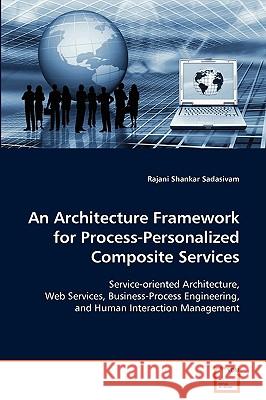An Architecture Framework for Process-Personalized Composite Services » książka
An Architecture Framework for Process-Personalized Composite Services
ISBN-13: 9783639087246 / Angielski / Miękka / 2008 / 220 str.
The integration of large systems remains problematic in spite of advances in composite services approaches. Current composite services approaches can effectively address only the integration of mechanistic processes. Processes with human interaction, abundant in large systems, are integrated in an ad hoc manner. As a result, a process gap occurs between user needs and implemented systems. The lack of support for human interaction with processes in large systems is referred to as the composite process-personalization (CPP) challenge. An architecture framework is presented that can systematically address the lack of CPP in current composite services approach. The framework is validated with two case studies, one in the biomedical informatics domain.
The integration of large systems remains problematic in spite of advances in composite services approaches. Current composite services approaches can effectively address only the integration of mechanistic processes. Processes with human interaction, abundant in large systems, are integrated in an ad hoc manner. As a result, a process gap occurs between user needs and implemented systems. The lack of support for human interaction with processes in large systems is referred to as the composite process-personalization (CPP) challenge. An architecture framework is presented that can systematically address the lack of CPP in current composite services approach. The framework is validated with two case studies, one in the biomedical informatics domain.











